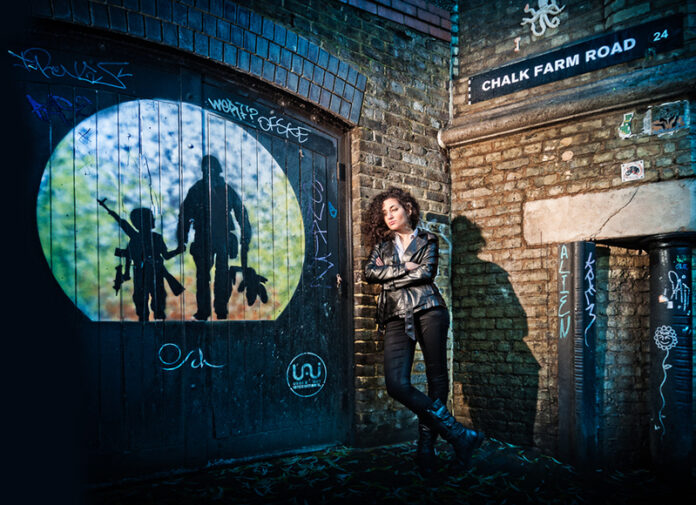Introducing Adrian & Bergit Barnett
By Bill Hedrick
Adrian and Bergit Barnett burst onto the photography scene six years ago when they were chosen to be the official photographers of the largest photographic convention in Europe, The Society of Photographers annual convention. In reality, they have been around a lot longer. But it was this job that brought them to a much wider audience. Who are they? How did that happen for them and what lesson can we learn from their story? Let’s hear it in their own words.
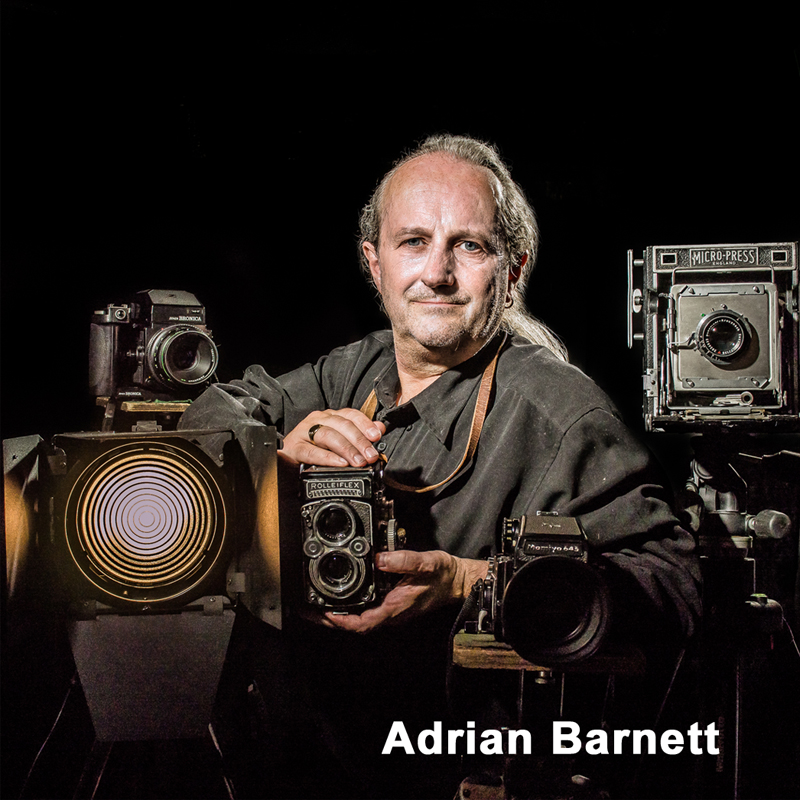 Adrian: It was Bergit I blame for all this! She saw a social media post asking if anyone wanted to photograph the awards night in London for
Adrian: It was Bergit I blame for all this! She saw a social media post asking if anyone wanted to photograph the awards night in London for
The Society of Photographers and some other images around the convention, and she thought it would be good practice in applying, never imagining we would get the job! And we assumed it would be a one-off anyway. When we were asked to do the job the next year we realized we must have been doing something right!
I think it all stems from our backgrounds. I grew up on film, and a roll of 120 film in a Rollei gave you 12 exposures, so shooting a wedding was great discipline in restraint, and manually metering for the light and anticipating the best shot and getting yourself in the right place. There was no opportunity to fire away like a machine gun like some people do nowadays and end up with 200 images all roughly the same but none of them a winning shot!
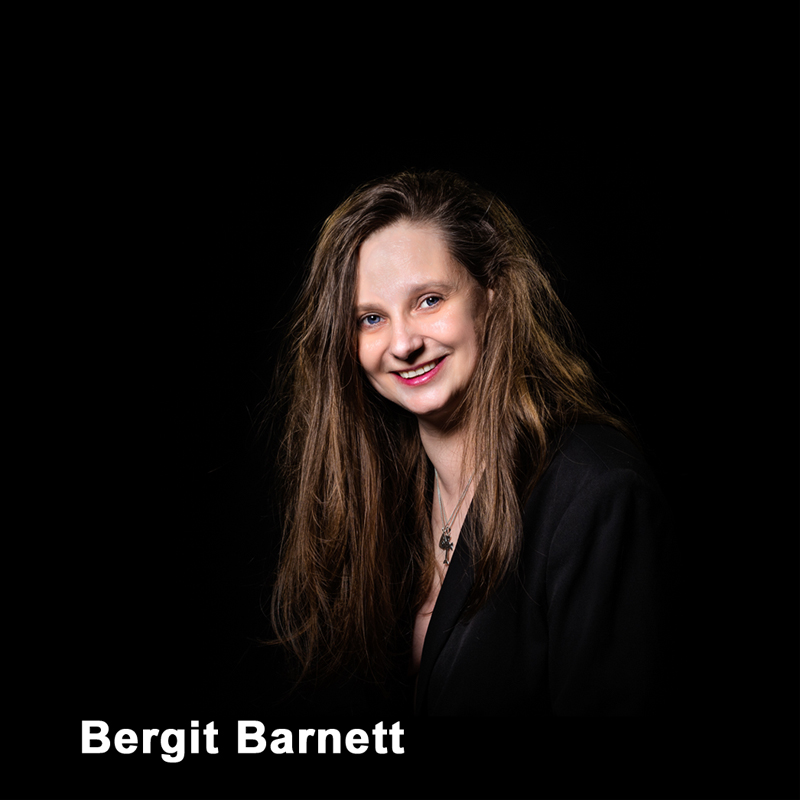 Bergit: In my defense, I have to add that by the time I saw the post, hundreds of other photographers had already expressed an interest. I just thought it would be good to gain a bit of practice in tendering for a big job like that. Why? Everything in life needs a bit of practice to get better at it. There was no harm in applying. But enough of that and more who we are and what we do.
Bergit: In my defense, I have to add that by the time I saw the post, hundreds of other photographers had already expressed an interest. I just thought it would be good to gain a bit of practice in tendering for a big job like that. Why? Everything in life needs a bit of practice to get better at it. There was no harm in applying. But enough of that and more who we are and what we do.
Adrian: Bergit grew up in East Germany and so her style and influences were vastly different from the films, stories, and music in the West (although she secretly listened to the great British and American bands through the ’80s). After The Berlin Wall came down and the collapse of Communism in Europe, she moved to Trier in the far west of Germany and studied Business & Economics in which she graduated with a Master’s Degree. Although we first met in London, we already knew each other for quite a while and had spoken many times while she was working in Luxembourg, commuting in from Germany each day. She knew I was a professional photographer and she was an enthusiastic and very talented amateur. So we had something in common and she wanted to improve her English. It was only after meeting in London, spending our time with photography, visiting art galleries and museums, Thames cruises, etc., did we discover there was something more. I obtained two licences to photograph Billingsgate Fish Market, which meant getting up at four o’clock in the morning, and Bergit came, too. If a young lady shared this much enthusiasm for photography then I realized she would not only put up with the strange lifestyle of a photographer, but positively embrace it! That was in October of 2006 and we got engaged on Christmas Day, two months later!
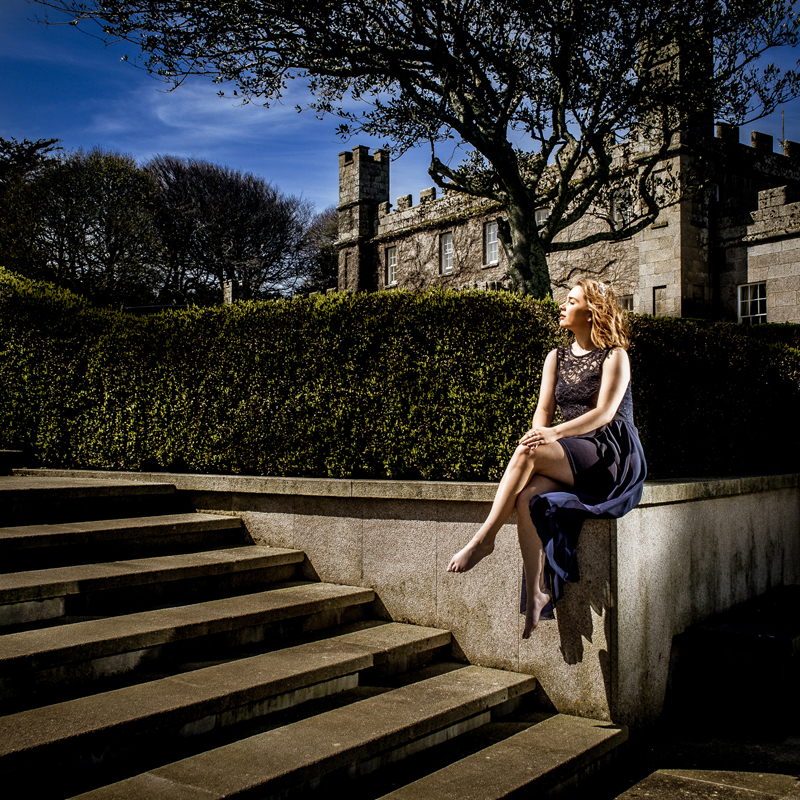
Bergit: That is when I met Adrian’s father for the first time. He started his career as a film producer and director before he moved into still photography. He’d worked at Pinewood, Elstree, Shepperton, and many other of the big film studios in the UK, and his influence on Adrian has been immeasurable. He ran a successful photographic studio in Hastings, England, for many years. Adrian practically grew up in the dark room. He started as his dad’s assistant, sweeping the studio floor and tidying up the cables of the lighting equipment. From an early age, Adrian showed an interest in his dad’s work and in photography. He not only learned the technical skills of photography but also the skills of directing and dealing with clients. When he was old enough, he joined his father in photographing weddings.
Later, Adrian worked in Advertising in London and dealt with marketing agencies like Saatchi & Saatchi. He already knew from his father what makes a good photograph but, in London, he also learned what an image needs to sell.
Adrian: Although people at the London Convention see us doing the event photography, our day job is vastly different. We are Advertising and Brand Photography & Video Specialists. I shy away from just saying “commercial photography” as it implies we only shoot products. Far from it. We work with the whole business: the people, their story, their products as well as their services, and present that in the best way to establish themselves and grow their business.
Bergit: Like people. Businesses have different strengths and weaknesses. For our commercial clients, we concentrate on their core strength – the story, the product or the experience they offer. As we stressed in some of our webinars we gave for The Society of Photographers, we believe in the mantra of under-promising and over-delivering. Yes, I agree. It is a harder sell at the beginning because you don’t promise great things just to secure the sale but it forms a solid bond with our clients and they are coming back to us. We believe in a “Business to Business” relationship. The services you offer need to bring the clients a return on investment.
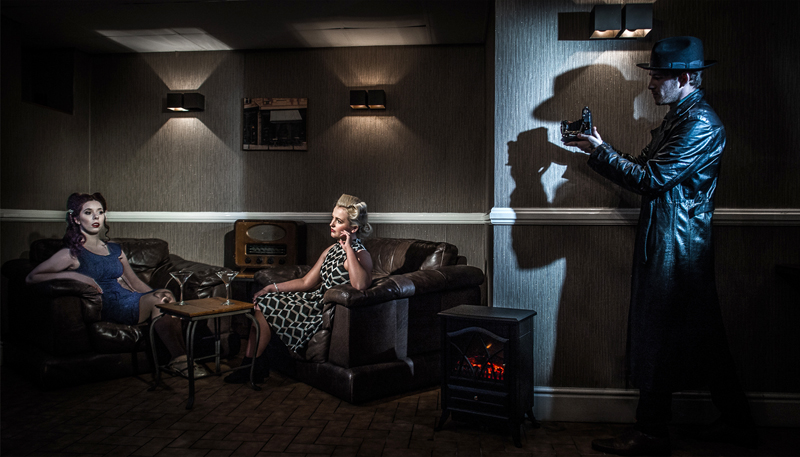
Adrian: The other part of our business is mentoring other photographers. When Bergit joined the business, she thought she had left her other life behind and the days of complex business analysis were behind her. Likewise, the days of advertising and creative content creation were satisfying nostalgia. However, it was lockdown that changed everything for the better. We contacted many people asking how we could help because of the circumstances and we discovered there was a real need for Bergit’s business expertise. It became apparent that Bergit’s qualifications in business combined with extensive international experience at the sharp-end became a real asset in what we could offer, and some of the astute things I learned with some of the big agencies in London and elsewhere kicked back in.
We also found that other photographers who excelled at lighting, composition, and other skills lacked the other side of business skills which you definitely need to achieve something meaningful and successful.
Just as we mentor other photographers with what they feel is their direction, we also look at where their customers come from and what they actually want and see if that fits in with what the photographers can offer. Having an idea of what they are best at helps in narrowing down where they fit in and we can also help them with the side of their business which is all about their branding and where and how they position themselves in a massive and sometimes over-crowded marketplace.
Bergit: Often we see other photographers copying each other and not really finding their Unique Selling Proposition. It is important to look at what other skills you have. We all have a different background and grew up in different circumstances. That makes everybody unique with their own individual story and their own strengths.
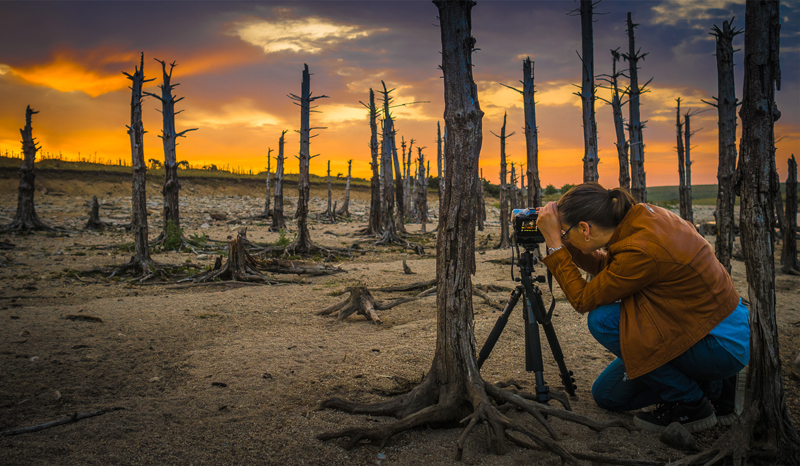
Adrian: All of this is a long way from seeing us in the London hotel flitting between rooms and judging panels like Quicksilver from the X-Men, but it employs the skills of our eyes in seeing a potential image, metering for the light, capturing the essence of a moment, rather than just recording pixels. It is absolutely exhausting, and we ache all over, but we love every moment of it. We get to chat to some really interesting people and businesses, we see some of the very best images in the world, we learn so much from listening to the judges and seeing some of the classes that it is a pity that we cannot be everywhere at once and absorb every minute of it. But the enthusiasm for creative inspiration that courses through the convention is infectious, and we never fail to come away feeling inspired and full of great advice, as well as within a hard drive full of powerful and engaging images.
Back home in Cornwall, life never stands still. The noise of London is replaced by the noises of the wild animals around where we live, near the edge of Bodmin Moor. But very quickly the conversation turns to what wonders the London convention might behold next year!
Bergit: I believe it is our planning, our drive to increase our photography skills and our hard work that led the team of The Society of Photographers to ask us back to photograph the annual convention the fifth time running. It is an honor for us to be part of such a great event and to be part of such a creative community. As we continue making more friends in the U.S., Australia, and Canada, it is great to hear from other photographers around the world, and we would love to hear from anyone wanting to get in touch, share their experiences and passion for the industry, and to offer any help we can give back to such a beautiful community.



